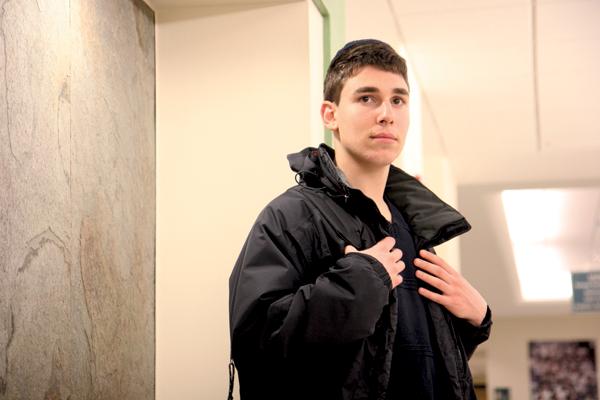
Yitzchak Haberman has all the signs of a New York State resident. He went to high school in New York, he is a student at Binghamton University and, most of all, he pays in-state tuition.
Haberman, a sophomore majoring in accounting, meets all the traditional criteria but one: he is not a New York resident.
But he is able to pay the in-state tuition rate due to a relatively unknown segment of New York education law, which applies to students who spent their final two years of high school in a New York school and who apply to a SUNY school within five years of graduation.
That segment of the law is at the center of a class-action lawsuit that three BU alumnae have brought against the University and SUNY in Broome County Supreme Court. The three women who filed the suit — Sara Strum ‘09, Lauren Beer ‘09 and Raquel Balsam ‘07 — were all New Jersey residents who attended high school in New York. All three paid out-of-state tuition during their time at BU.
They discovered the segment after they had graduated and have since invoked Article 8, Section 355(2)(h)(8), which states that non-residents shall pay a rate no greater than that of the in-state rate if, among other things, such a student “attended an approved New York high school for two or more years, graduated from an approved New York high school and applied for attendance at an institution or educational unit of the state university within five years of receiving a New York state high school diploma.”
Unlike the three petitioners in the case, Haberman said he knew of the statute even while he was still in high school at SAR High School, a yeshiva in Riverdale. He said he knew about it through his grandmother, who worked in the New York City public school system. He also said the law that mandated the lower rate was a major factor in his decision to apply to BU.
Haberman said he completed his application forms accurately, but as he began his first semester he discovered that he was nevertheless charged the out-of-state tuition rate — a difference of nearly $4,000 per semester.
“It’s a big deal. It’s a lot of money,” Haberman said.
He did resolve the discrepancy, but not without some effort.
“I was very persistent about it,” he said.
Haberman said he made two or three trips to the Student Accounts office to settle the issue, and he was ultimately issued a refund and established his eligibility for the in-state tuition rate. He sympathised with the plaintiffs, who now face a legal battle over the difference in tuition.
“Thank God I’m not in their situation,” he said of the alumnae.
Altogether, the plaintiffs paid about $116,000 in tuition, which is about twice the estimated amount that they would have paid under the in-state tuition rate.
Andrew L. Lee of ALL Counsel P.C. in New York City is representing the alumnae. He countered the position of Laura Barnhill, the assistant attorney general representing SUNY, who expressed in court last year that “the students are … the most aware of their circumstances,” and thereby responsible for bringing their status to the attention of the University.
“Who in their right mind … would think to start digging through the layers of SUNY bureaucracy,” Lee told Pipe Dream Thursday.
The suit further alleges that BU and SUNY “have engaged in a persistent pattern of deceptive and misleading conduct designed to obfuscate the ability of applicants to discover the rule requiring SUNY to charge the resident tuition rate.”
Because the case was filed as a class-action lawsuit, a court victory for the plaintiffs could mean that all SUNY students who face the same circumstances could receive a refund for any overpaid tuition.
Lee said he was unsure of the percent of current or former SUNY students that would fall into this category, but he said he believes “there is a not insignificant number of students.” He also said he has asked for that information from SUNY officials, but they have not yet determined an official number. BU representatives also could not provide estimates of the number of persons potentially involved in the suit.
University spokeswoman Gail Glover said the University maintains it has the legal backing for its actions.
“We are aware of this class action lawsuit and while we recognize their right to file legal action, we will mount a vigorous defense,” she said. “We followed both SUNY and campus policy and our actions will be found to have been appropriate.” Glover would not provide any further information, citing the ongoing lawsuit.
But following SUNY and campus policy alone may not be enough to hold up in court. In a hearing of an earlier version of the case involving one of the same plaintiffs last year, Judge Ferris Lebous seemed to side with the plaintiff, saying that BU policy does not override state statute.
“It says this is the rate that it will be paid at. It doesn’t say except if the University policy is contrary to this,” Lebous said.
That case was dismissed, however, because Lebous ruled that the University had not yet formally denied requests for tuition reimbursement. The requests have since been denied, and a new case has since been brought forth.
A hearing is scheduled for April 15.


